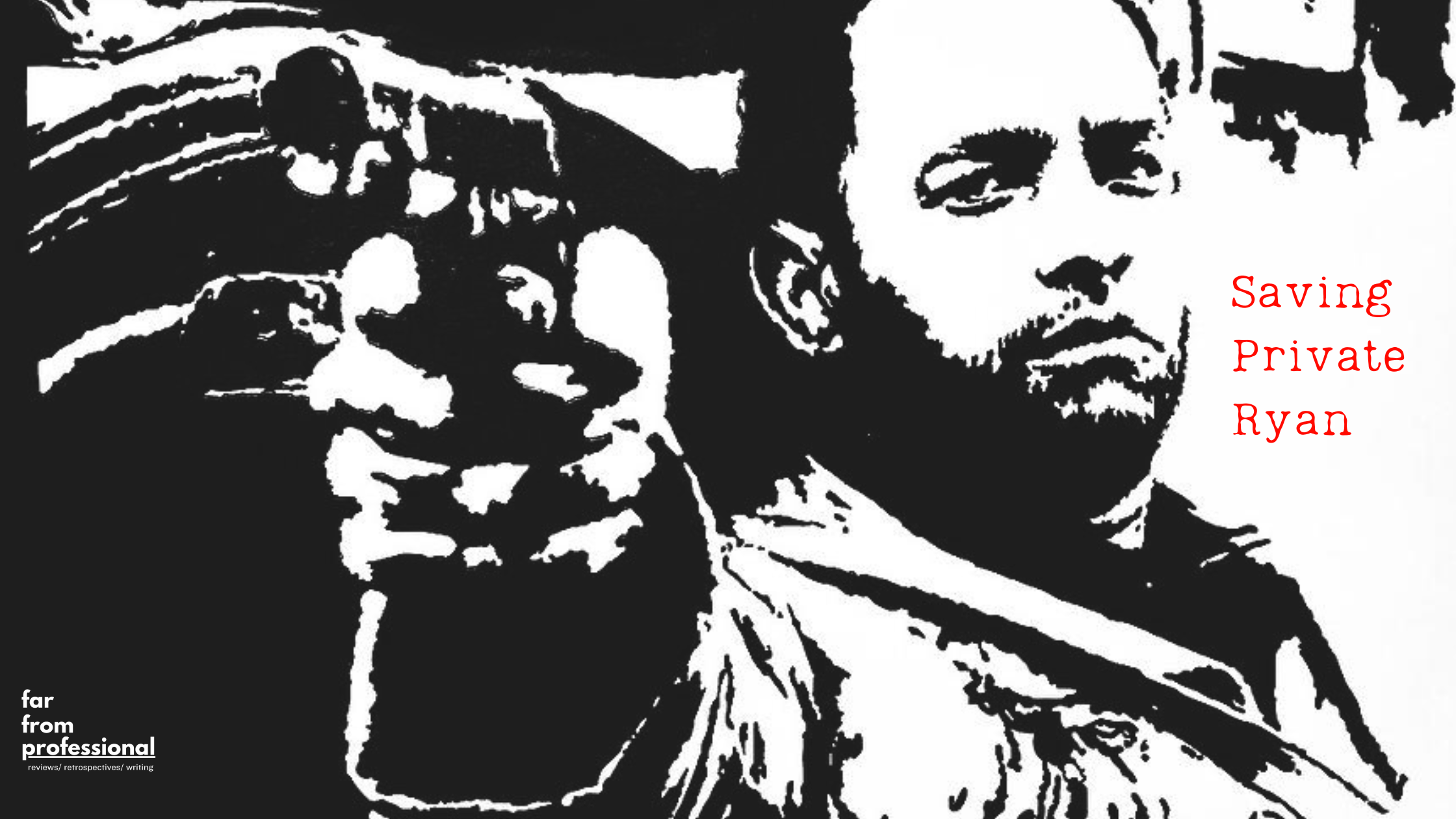Saving Private Ryan: 25th Anniversary
Source: Byron Holley/FFP
By Nick M.W.
Steven Spielberg’s tour-de-force Word War II movie is an incredible homage to the soldiers who stormed Omaha Beach and a bleak reminder of the horrors of war.
I only saw my dad cry a handful of times in my life. One time, when I was seventeen, my dad was talking to me about a book he just read called Genesis: Memory of Fire, the first volume of a trilogy by the Uruguayan author Eduardo Galeano. Describing parts of the book got my dad choked up. He didn’t cry outright, but it was close. Another time, my dad was well into his 70s, and we were chatting on the phone. He was recounting a story from yesteryear, one of those that centers around regret over something that happened and couldn’t be undone. He got choked up then, too.
The first time I saw my dad legit cry—tears streaming down his cheeks like a Coldplay song—was when he took me and my two younger brothers to go see Saving Private Ryan. My dad, born in 1940, turned fifty-eight the summer Saving Private Ryan was released. World War II dominated the cultural milieu during the first decade of his life, and he went on to serve in the U.S. Air Force in the 1960s, so he had a deep respect for veterans, especially those from the “Greatest Generation.”
If you have never seen Saving Private Ryan, perhaps it’s because you’re not into the genre, this is not a typical war movie. It is patriotic, but it does not glorify war. The patriotism this movie elicits is born out of respect for the many sacrifices, the staggering number of casualties, the soldiers and their families endured. If you’ve never seen this movie, it’s impossible to simply describe the first half hour and expect you to appreciate its impact on the soul. I can’t put into words what it must have been like to be the first wave of Allied troops to land on Omaha Beach. It’s impossible to truly understand the horror without experiencing it, but all be damned if Steven Spielberg and his crew don’t do an excellent job of putting those horrors within our grasp.
Here’s a clip from the movie’s opening:
After around twenty minutes of this, once Omaha Beach is captured by the Allies, I turned to look at my dad, and that’s when I saw his tears. He didn’t look at me; he kept his eyes on the screen, and I went back to watching the movie.
The things that make Saving Private Ryan a great movie are the stunning technical achievements in cinematography, design (costume and set), and sound. The cast is also fantastic, featuring a variety of stars in both lead and supporting roles, and a couple of high-profile cameos, too—the best performance among all of them belongs to the late Tom Sizemore, as Sgt. Hovarth. Saving Private Ryan is a masterpiece of cinema, for sure. However, what makes this movie memorable is the story behind it; not the fake one that writer Robert Rodat made up for the plot of the movie, but the real one about the actual men who stormed the beach at Normandy, or who parachuted into France, behind enemy lines. That really happened, and Saving Private Ryan, better than any war movie that came before it, made you feel like you were in the battles with the small group of soldiers from the 2nd Ranger Battalion.
This isn’t a perfect movie. The pacing slows a bit after the Omaha Beach invasion to set up the urgency to find Private James Francis Ryan and save him before he is killed in action, like his three other brothers. It’s a necessary piece to this story, but after the terrifying adrenaline rush we experience to open the movie, anything else that followed it would feel like crawling through mud in comparison. There is also the movie’s cheeseball epilogue. I think it would have been more powerful to end the movie in a similar way but without any dialogue spoken between the elderly James Ryan and his family.
Up against the marvel of film-making achievement that is Saving Private Ryan, those issues get smothered. They are small blemishes on what is easily one of Steven Spielberg’s greatest movies. It moved my dad to tears, as it did to the other men of his generation and older who were in the auditorium with us. Twenty-five years later, Saving Private Ryan serves as a reminder of the absolute horror that is war and an homage to the tremendous sacrifices of those World War II veterans (and veterans of other wars). It is also an incredibly well-made movie that lost the “Best Picture” Oscar to Shakespeare In Love. What was the Academy thinking?


